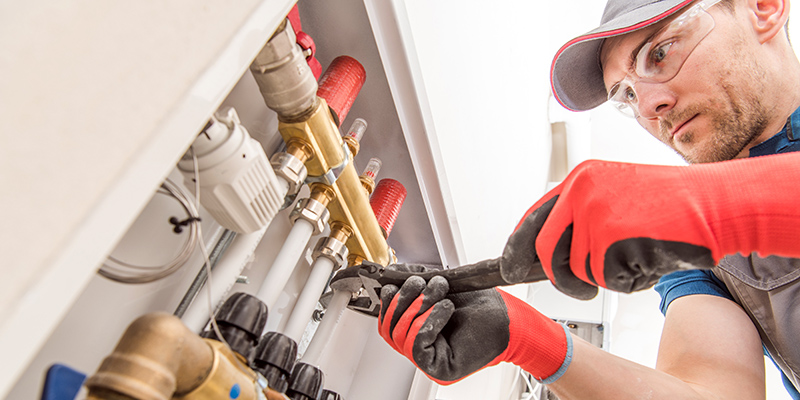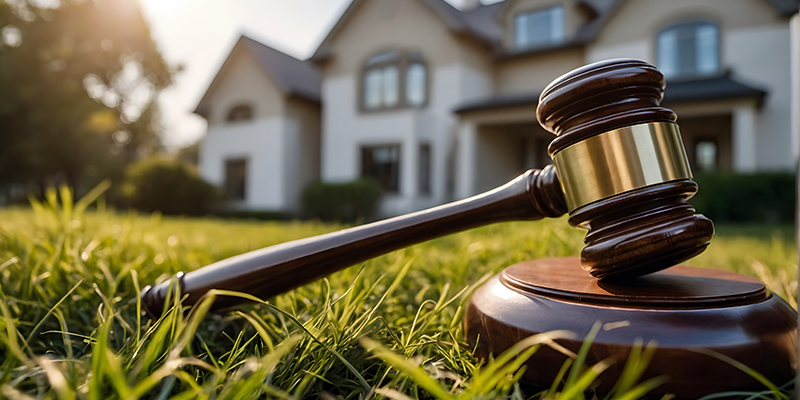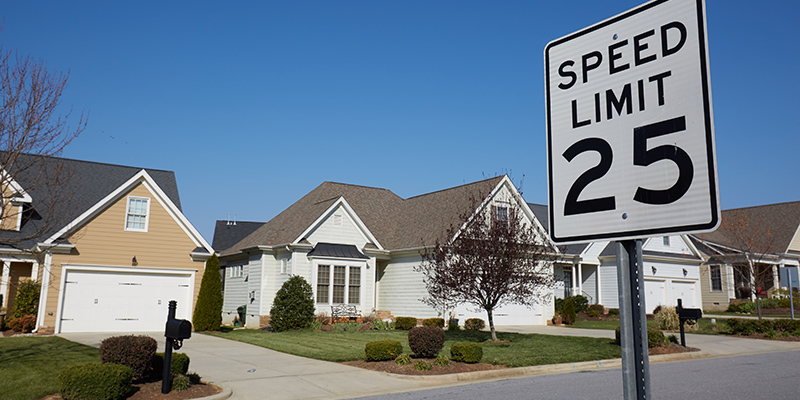How To Make HOA RFP For Vendors
Homeowners associations require help from various vendors to function correctly. However, finding the right vendors can be a long and tedious task. Instead of asking for quotations, many HOAs choose to create and send an HOA RFP to the vendors of their choice.
What is an HOA Request for Proposal?
An HOA Request for Proposal (RFP) is a document the HOA provides to potential association vendors. It includes all the information involving a project’s specific details, scope of work, and quotation requests. The HOA RFP for vendors serves as a guide for companies interested in working with the association.
Typically, RFPs also indicate the process the HOA wants partners to follow. An HOA RFP also asks for custom information from the vendor to ensure they can meet the association’s requirements. This helps the board quickly assess whether the vendor is the right fit. Generally, RFPs achieve two things:
- Introduction of the HOA. RFPs for association management services and other jobs introduce the community to the vendor. The vendor no longer needs to learn more about the association’s goals and requirements and adjust accordingly.
- Better Understanding. RFPs allow HOAs to understand better how a prospective vendor operates. It unveils their processes and whether or not their operations are compatible with the HOA.
Unfortunately, there is a lot of negativity surrounding RFPs. Vendors dislike them because they prefer to invest time in customizing a proposal only when they’ve already won the client. An RFP demands more time and effort from the vendors even though it does not guarantee that they will work with the HOA.
Nonetheless, RFPs are a useful tool for large projects. Many vendors will still respond to RFPs instead of sending a generic proposal if they see the benefit in the project. If a vendor responds, the HOA will know they’re serious about their work and building a good relationship with the association.
How to Make an HOA RFP
Understanding RFPs and their importance is just half the battle. Once the board has decided to create an RFP for HOA management services or other jobs, it needs to create a thorough RFP to send to vendors. Here are some things HOAs should include in every RFP, whether for landscaping services, HOA management, or construction.
1. Overview
An HOA RFP must include an overview or summary of the request. The overview should describe the job and the vendor’s engagement with the association. Ensure the description is clear and provides a picture of what the HOA expects, where the project will take place and other requirements. Vendors will use the overview to determine whether or not they are the right fit for the job.
2. HOA Information
Every HOA RFP template should include the association’s information. Doing this allows the vendor to understand the HOA’s context and situation. It will also help them determine the project’s scope and requirements. Include the following information:
- HOA location
- Size of the community
- Amenities and other facilities
- Current staff and organizational structure
- Present challenges within the community
- Other information that would help the vendor understand the HOA
3. Project Goals
 Homeowners associations shouldn’t just send an RFP detailing the project’s scope of work. They should also provide a clear objective for the project. After all, the deliverables and scope of work may change if the project’s overall goals and trajectory change.
Homeowners associations shouldn’t just send an RFP detailing the project’s scope of work. They should also provide a clear objective for the project. After all, the deliverables and scope of work may change if the project’s overall goals and trajectory change.
Include the project’s purpose and the board’s vision for the community. Remember to outline it clearly so the vendors understand what the HOA is trying to achieve.
4. Scope of Work and Deliverables
Every RFP should include the scope of work. This helps the vendor understand the HOA’s expectations and obligations. Typically, this section is one of the lengthiest parts of the RFP.
There is no standard template for the scope of work. The important thing is that HOAs make their expectations clear. Here are some things the board should include in this section:
- Reasons the HOA is looking for a vendor
- Current HOA situation
- List of services required from the vendor
- Additional responsibilities the HOA may ask from the vendor
- Projected timeline for the project
- People responsible for decision-making
5. Vendor Information
RFPs should also include a section specifying the information the association needs from the contractor. As you might expect, this section will vary from job to job. Here are some things to include:
- Vendor history (e.g., how long they’ve been operating, how many other associations they work with, previous work history, etc.)
- List of staff
- Specializations and processes
- General scope of services
- Any software the HOA must download to avail of the service
- Budget and price breakdown
- Support options
6. Submission Process
 HOA vendors need to know what the application process is like. In this section, tell the vendor where and when they must submit the proposal. It may also include any next steps they can expect from the HOA after receiving the bid.
HOA vendors need to know what the application process is like. In this section, tell the vendor where and when they must submit the proposal. It may also include any next steps they can expect from the HOA after receiving the bid.
The board should explain their timeline for vendor selection. Doing this prevents vendors from needlessly waiting for a response. It saves everyone time and shows respect to the vendors as well.
In addition, make sure to outline how the HOA will choose a vendor. Most contractors will be interested in learning the HOA’s qualifications and how they will decide. This way, they can prepare a customized proposal that hits all the marks. HOAs should also let them know whether additional meetings or interviews will occur.
7. HOA Documents
Depending on the service, the HOA might also need to include additional documentation about the association. This will provide a clearer picture of the association’s circumstances and needs. Here are some of the documents the board may need to attach:
- HOA CC&Rs and bylaws
- Policy Manual
- Membership application
- Annual reports
- HOA meeting minutes
- Most recent financial statements
- Year-end audit
- Meeting brochure
- Advertising rate card
Finding the Right Vendors
An HOA RFP is a useful tool for planned communities. It allows the board to fine-tune vendor requirements and find the most appropriate contractor. Preparing it in advance saves time for both the HOA and potential contractors.
Condo Manager is an excellent HOA management software tailored for HOA management companies and self-managed associations. Call us at (800) 626-1267 or contact us online for more details!
RELATED ARTICLES:
- Is An AI HOA Management Software Better Nowadays?
- Should You Hire HOA Security Guards?
- HOA Social Media Account Best Practices



 Many HOAs provide amenities like parks, gyms, pools, and co-working centers. Consider renting these out as part of HOA fundraising. The money HOAs can make from renting them out can be significant, especially if the amenities are nice or the HOA is in an area with high demand.
Many HOAs provide amenities like parks, gyms, pools, and co-working centers. Consider renting these out as part of HOA fundraising. The money HOAs can make from renting them out can be significant, especially if the amenities are nice or the HOA is in an area with high demand. Some HOAs may have unused parking lots or buildings that they can convert into a profitable business. For instance, if there’s a lot of unused land in the area, consider converting it into a pay-parking space. Outsiders (or even the residents’ guests) can pay for parking. It’s a good idea if the HOA is near any commercial establishments or offices.
Some HOAs may have unused parking lots or buildings that they can convert into a profitable business. For instance, if there’s a lot of unused land in the area, consider converting it into a pay-parking space. Outsiders (or even the residents’ guests) can pay for parking. It’s a good idea if the HOA is near any commercial establishments or offices.
 3. Size of Signs
3. Size of Signs 6. Obscenity
6. Obscenity
 How do you account for reserve funds? After conducting a reserve study, the HOA may aim to maintain a certain percentage of the ideal reserve funds to remain healthy. Ideally, reserve accounts should be fully funded. However, maintaining a 70% funded reserve account should be a decent level to aim for if the community is underfunded.
How do you account for reserve funds? After conducting a reserve study, the HOA may aim to maintain a certain percentage of the ideal reserve funds to remain healthy. Ideally, reserve accounts should be fully funded. However, maintaining a 70% funded reserve account should be a decent level to aim for if the community is underfunded. HOA board members are not always legal or financial experts. They rarely have financial or legal backgrounds. Hence, they might not know why the reserves are important and how to manage the funds wisely. HOAS needs to educate the board members about proper reserve fund management.
HOA board members are not always legal or financial experts. They rarely have financial or legal backgrounds. Hence, they might not know why the reserves are important and how to manage the funds wisely. HOAS needs to educate the board members about proper reserve fund management.
 Can HOAs Still Sell Homes?
Can HOAs Still Sell Homes? 4. Create a Financial Plan
4. Create a Financial Plan
 Does the HOA cover plumbing? The HOA is likely responsible for repairing plumbing systems in the common areas. Moreover, the board should conduct periodic inspections and regular maintenance activities on the plumbing system.
Does the HOA cover plumbing? The HOA is likely responsible for repairing plumbing systems in the common areas. Moreover, the board should conduct periodic inspections and regular maintenance activities on the plumbing system. HOA plumbing issues can be tricky to navigate as most pipelines run through the entire community. It’s even harder when some pipes only serve a few residences and not others. Both homeowners and board members must review the governing documents to understand their scope of responsibility.
HOA plumbing issues can be tricky to navigate as most pipelines run through the entire community. It’s even harder when some pipes only serve a few residences and not others. Both homeowners and board members must review the governing documents to understand their scope of responsibility.
 First and foremost, homeowners should read and understand the governing documents. This will help them determine whether their fight is justified or whether they need to pay the money.
First and foremost, homeowners should read and understand the governing documents. This will help them determine whether their fight is justified or whether they need to pay the money. After researching and preparing your plan, file an appeal with the board. This usually involves sending a letter disputing the fine to the board.
After researching and preparing your plan, file an appeal with the board. This usually involves sending a letter disputing the fine to the board.
 Will the social media page be public or exclusive to residents?
Will the social media page be public or exclusive to residents? Engagement is an integral part of social media. The HOA’s social media account might become useless if it isn’t engaging. What use is there to post announcements on a website nobody looks at or sees?
Engagement is an integral part of social media. The HOA’s social media account might become useless if it isn’t engaging. What use is there to post announcements on a website nobody looks at or sees?
 Access Control. Security guards may guard entry points to ensure only those authorized can enter the community.
Access Control. Security guards may guard entry points to ensure only those authorized can enter the community. While an HOA security patrol is undoubtedly useful, it can also be costly. This is especially true for large communities with multiple entry points. However, just because a community cannot afford security guards does not mean they should give up on enhancing safety and security.
While an HOA security patrol is undoubtedly useful, it can also be costly. This is especially true for large communities with multiple entry points. However, just because a community cannot afford security guards does not mean they should give up on enhancing safety and security.
 When a resident exceeds the speed limit, the HOA will enforce the rules using the normal violation process. Associations usually send notice to the violating homeowner and issue a warning.
When a resident exceeds the speed limit, the HOA will enforce the rules using the normal violation process. Associations usually send notice to the violating homeowner and issue a warning. 3. Install Rumbles and Speed Bumps
3. Install Rumbles and Speed Bumps
